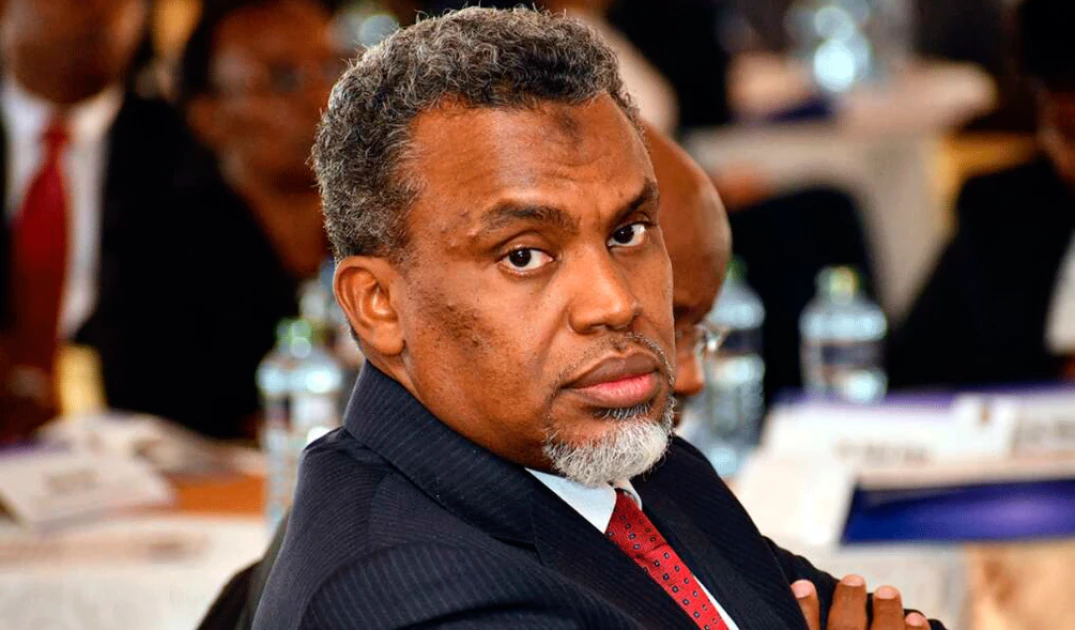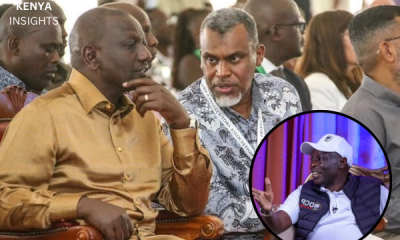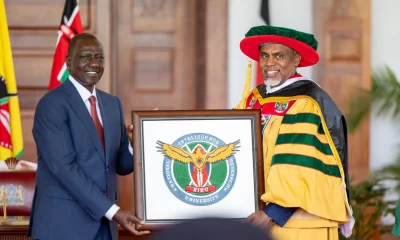Politics
Will Ruto Shield NIS Director General Noordin Haji Against DP Gachagua’s Bullying Tactics?
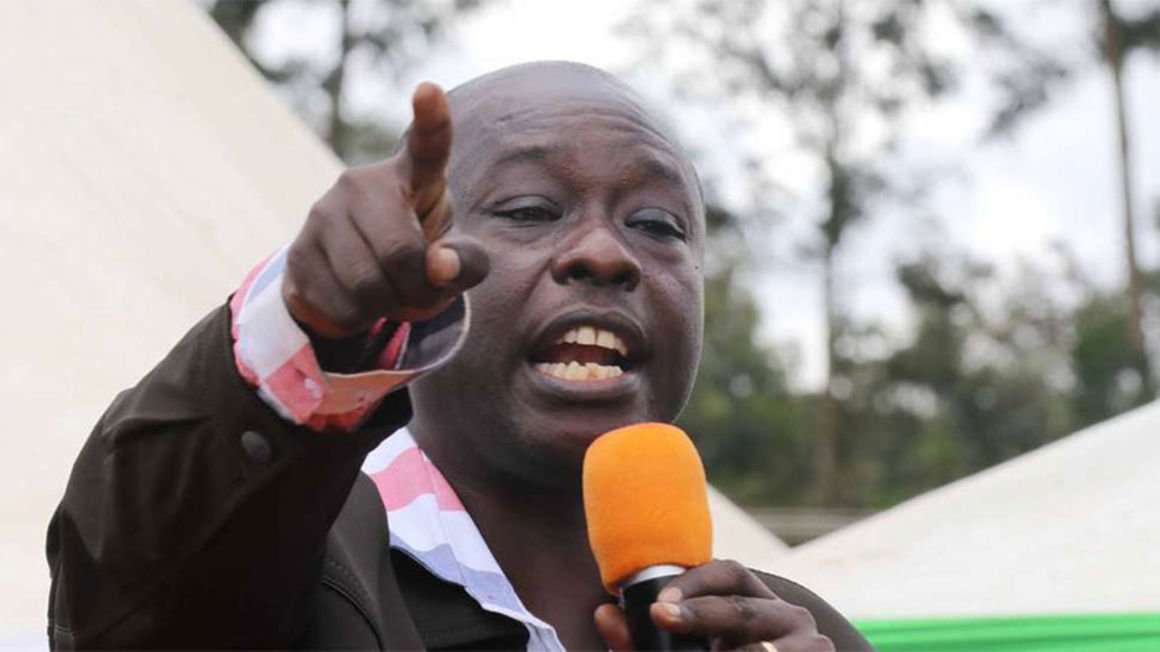
In a startling turn of events, Deputy President Rigathi Gachagua has launched a scathing attack on the National Intelligence Service (NIS), accusing it of catastrophic failure.
Gachagua alleges that NIS Director General Noordin Haji’s negligence directly contributed to the recent deadly protests that swept across Kenya.
These protests, fueled by public outcry over the Finance Bill 2024, caught the government off guard, leading to loss of life and extensive property damage.
Gachagua, known for his outspoken nature, minced no words in his criticism. He asserted that timely intelligence from NIS could have averted the crisis, preventing the need for drastic measures to quell the unrest.
His accusations extend to questioning Haji’s leadership capabilities, implying that Haji’s tenure has been marked by incompetence.
The Deputy President’s statements come amidst a backdrop of political tension and public scrutiny.
With President William Ruto’s nomination of Noordin Haji as the new NIS Director General in May 2023, replacing Major-General (Rtd) Philip Wachira Kameru, expectations were high for effective intelligence operations.
However, according to Gachagua, these hopes were dashed as NIS allegedly failed to provide crucial insights into public sentiment regarding the controversial Finance Bill.
During a press conference in Mombasa, Gachagua highlighted reports from senior police officials who claimed they had not received adequate intelligence about the scale and intensity of the protests, suggesting a systemic breakdown within Kenya’s security apparatus.
This failure, as Gachagua asserted, rests squarely on Haji’s shoulders, demanding accountability for the turmoil that ensued.
President Ruto, in a significant move, later announced the withdrawal of the Finance Bill 2024, acknowledging the gravity of the situation and the need to appease public discontent.
However, the spotlight remains on whether Haji will face consequences for the perceived intelligence failure.
Political Fallout and Strategic Maneuvers
The rift between Deputy President Gachagua and NIS Director General Haji underscores deeper political tensions within the Ruto administration.
Gachagua’s vocal critique, while ostensibly aimed at Haji’s leadership, also hints at broader dissatisfaction within the government’s inner circles.
By publicly calling for Haji’s resignation, Gachagua not only challenges the integrity of NIS but also questions the decision-making prowess of President Ruto, who endorsed Haji for this critical role.
The timing of Gachagua’s accusations, immediately following President Ruto’s address to the nation regarding the Finance Bill, amplifies their impact.
It signals discord within the administration, potentially influencing public perception of Ruto’s leadership capabilities and the efficacy of his appointed officials.
Moreover, Gachagua’s assertions could resonate with a populace disillusioned by economic hardships and seeking accountability from their leaders.
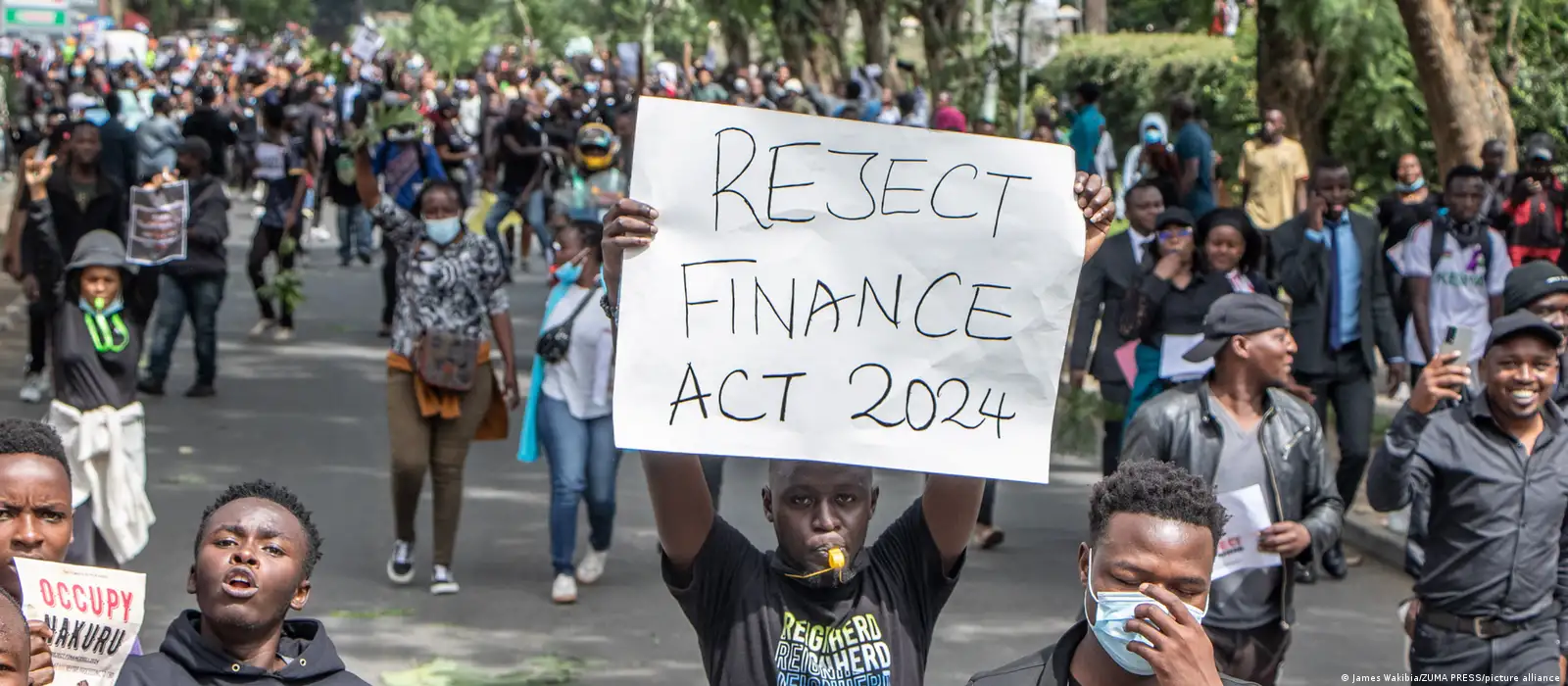
Following nationwide protests, Kenya faces a pivotal moment. Deputy President Gachagua’s accusations against NIS Director General Noordin Haji spark debates on leadership and intelligence effectiveness.
The Future of Haji and Kenya’s Intelligence Landscape
As pressure mounts on Noordin Haji to step down, the dilemma facing President Ruto is stark.
On one hand, retaining Haji may signal a defense of his initial appointment and a commitment to stability within NIS.
On the other hand, yielding to Gachagua’s demands could appease critics and demonstrate responsiveness to public outcry.
The decision will not only impact Haji’s career but also carry implications for the Ruto administration’s governance trajectory.
It poses questions about the administration’s ability to navigate internal dissent while maintaining public trust and stability.
Ultimately, President Ruto’s response to Gachagua’s accusations will shape perceptions of his leadership style and decision-making prowess during a pivotal moment in Kenya’s political landscape.
Conclusion
In the aftermath of nationwide protests and political turmoil, Kenya stands at a crossroads.
Deputy President Gachagua’s damning allegations against NIS Director General Noordin Haji have ignited a debate on leadership, accountability, and the efficacy of intelligence operations.
As calls for Haji’s resignation reverberate through political circles, President Ruto faces a critical decision that could define his administration’s legacy.
The outcome of this saga will not only determine Haji’s future but also influence public confidence in the Ruto administration’s ability to govern effectively amidst challenges.
Whether Ruto chooses to shield Haji from Gachagua’s attacks or succumb to political pressure remains to be seen.
However, one thing is certain: the ramifications of this decision will resonate far beyond the corridors of power, shaping Kenya’s political landscape for years to come.
Kenya Insights allows guest blogging, if you want to be published on Kenya’s most authoritative and accurate blog, have an expose, news TIPS, story angles, human interest stories, drop us an email on [email protected] or via Telegram
-

 Grapevine2 weeks ago
Grapevine2 weeks agoAlleged Male Lover Claims His Life Is in Danger, Leaks Screenshots and Private Videos Linking SportPesa CEO Ronald Karauri
-

 Grapevine1 week ago
Grapevine1 week agoRussian Man’s Secret Sex Recordings Ignite Fury as Questions Mount Over Consent and Easy Pick-Ups in Nairobi
-

 Investigations5 days ago
Investigations5 days agoMulti-Million Dollar Fraud: Three Kenyans Face US Extradition in Massive Cybercrime Conspiracy
-

 Economy4 days ago
Economy4 days agoIran Demands Arrest, Prosecution Of Kenya’s Cup of Joe Director Director Over Sh2.6 Billion Tea Fraud
-

 News3 days ago
News3 days agoTHE FIRM IN THE DOCK: How Kaplan and Stratton Became the Most Scrutinised Law Firm in Kenya
-

 Business5 days ago
Business5 days agoA Farm in Kenya’s Rift Valley Ignites a National Reckoning With Israeli Investment
-

 Business2 weeks ago
Business2 weeks agoM-Gas Pursues Carbon Credit Billions as Koko Networks Wreckage Exposes Market’s Dark Underbelly
-

 Africa1 week ago
Africa1 week agoFBI Investigates Congresswoman Ilhan Omar’s Husband’s Sh3.8 Billion Businesses in Kenya, Somalia and Dubai

